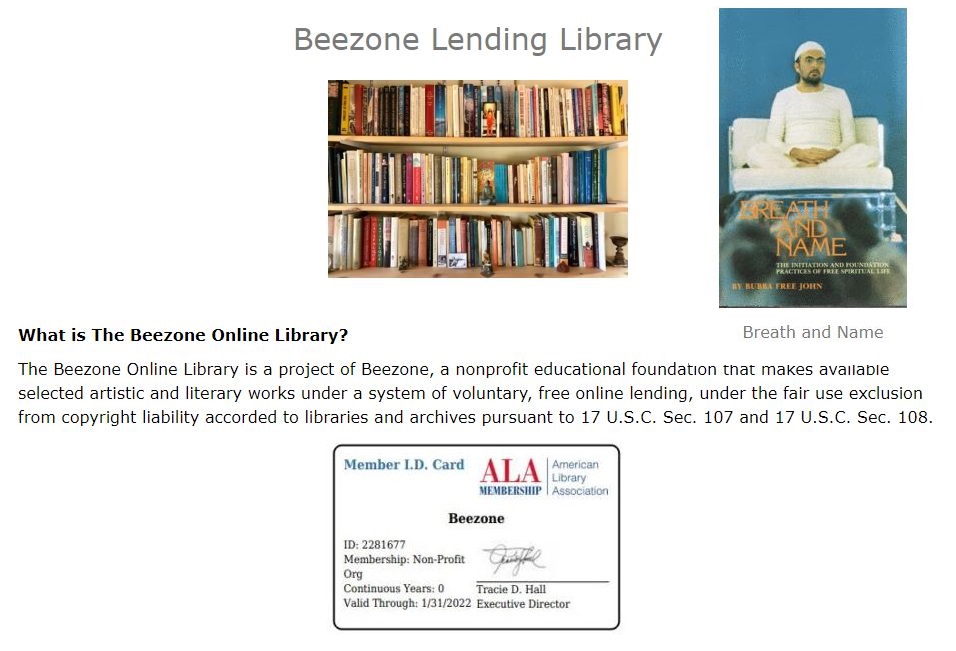Breath and Name
By Bubba Free John.
The Initiation And Foundation Practices Of Free Spiritual Life.
Only edition: 5/77.
©1977 Vision Mound Ceremony.
ISBN: 0-913922-29-3.
LOCCCN: 77-72993.
Introduction:
If You Do Not Hear the Argument for Spiritual Life, You Can Never Begin
True Practice of the Way (VMC, 3/30/77).
Part I: ‘Moving Beyond Childish and Adolescent Approaches to Life and
Truth’
(reworking of “The Way of Dissolution and The Way of Experience”
(8/11/74), Garbage and the Goddess.
Part II: The Written Instructions of Bubba Free John on the Way of Divine
Communion:
1. ‘The Way of Divine Communion Is the Way of Loving Submission and Attention
to God.’
2. ‘The Way of Approach to Grace.’
3. ‘The Law of Sacrifice: The Form of All the Worlds.’
4. ‘Faith, Sacrifice, or Dependence on Grace is Heart-felt Release from
the Cave of Subjectivity.’
5. ‘The Practical Life-Disciplines of the Way of Divine Communion.’
6.’Breath and Name: The Spiritual Discipline.’
7. ‘True Meditation Is in the Form of Sacrifice, or Relationship.’
8. ‘The Spiritual Master: My Devotee Always Feels Me to Be Present.’
9. ‘The Law Must Be Fulfilled in Both Directions.’
Part III: A Practical Commentary on the Way of Divine Communion:
1. Release Everything and Receive the Divine: A Summary Overview of
the First Stage of Spiritual Practice
2. Life-Conditions: The Foundation and Preparation for Free Spiritual
Life:
The Celebration or Sacrament of Universal Sacrifice (Prasad).
Real Study Is Listening and True Hearing of the Teaching.
“Money” Is Energy, Effort, Life, Commitment, and Love.
Eat According to the Laws of the Body-Being.
Lawful Sexuality Is Intimate Play in the Marriage Relationship.
Service Is the Epitome of the Life-Conditions.
Devotional Singing. Daily Schedule.
Celebrations of the Principles and Practices of the Way of Divine Ignorance.
Summary Points on the Practical Disciplines of the Way of Divine Communion.
3. The Spiritual Disciplines Are a Gift of Grace:
What to Do When You First Come into the Formal Occasion of Sitting with
the Spiritual Master.
The Breath of God and the Name of God Are Realizations of Prasad, or Reception-Release.
What to Do When You Sit for Real Meditation.
Practical Notes on the Meditation Posture.
Summary Description of the Spiritual Disciplines of the Way of Divine Communion.
Epilogue: ‘How I Comprehend My Own Work.’
Invitation.
Appendix A: Life and Meditation Summary.
Appendix B: Reading List.
(275 pp.)

